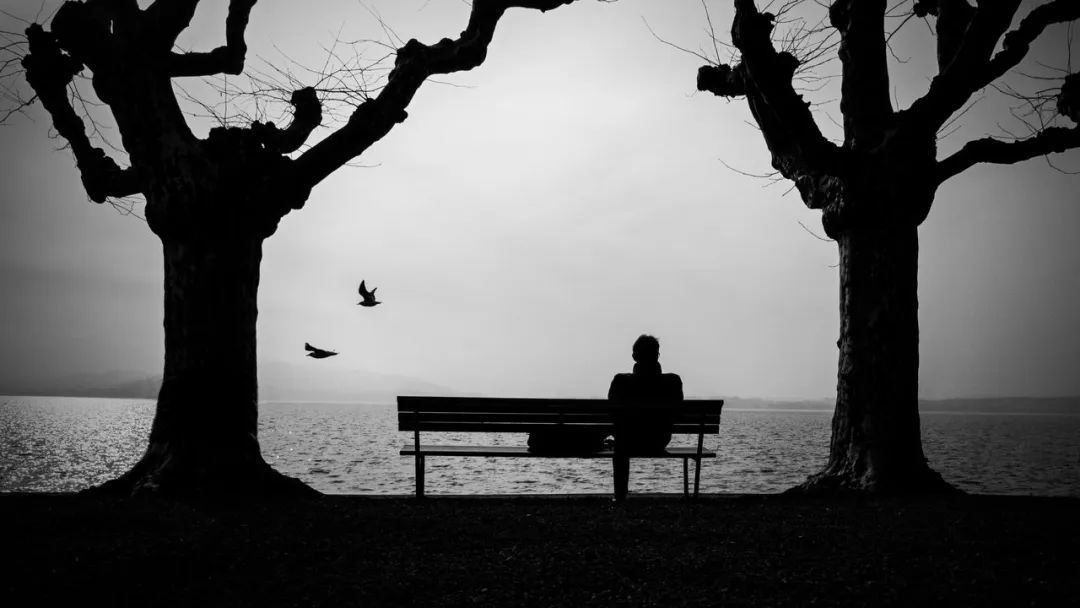
The old days won't come back

On June 29, Shanghai finally opened dine-in restaurants four weeks after the unsealing of the lockdown. From today onwards, indoor venues such as art galleries, museums, and gymnasiums will be opened. This time, the media didn't show much about "Shanghai's fireworks are coming back" (probably because of the overturned car in May), but some people do feel half sad and half relieved that the old days are coming back little by little.
Actually not. The past is the past, it will not come back.
Of course, nostalgia is understandable, and it takes a relentless sobriety to refrain from being nostalgic when you’re terrified of an uncertain future. Essentially, nostalgia is a euphemistic denial of reality, because its underlying implication is that the best of futures will not be as good as the past. In this regard, the so-called "fireworks are coming back" is a double failure in propaganda - not only does it fail to prove that the past is returning, but even if it does, it implicitly admits that the present is not as good as the past.
Just like a dream, the epidemic just said so and went away, but no one does not know when it will come back. If any dream could be shattered at any moment, the future would be meaningless, at least not worth looking forward to. Through these experiences, we can appreciate Hegel's insight more deeply: the future is not an object of knowledge, but an object of hope and fear. If a few years ago, the future was exciting and exciting because of its unpredictability, now it is scary and daunting. Optimism has become anachronistic.
We have lost the past, and now there is no future, only the isolated island of the present. In Nabokov's words, "the present is only the culmination of the past, the future does not exist". This may be some kind of Chinese-style existential dilemma: because the bridges to the past and the future are broken, they can no longer provide meaning to life in the present, and people are forced to create meaning through their actions in the present, which is meaningless after all life is unbearable.
It is precisely because the future is meaningless that we can only live every day of the present, and people are liberated from the daily burdens. On June 29, there was a sudden downpour in Shanghai, and many citizens took a bath in the street in the rain. Many people were talking about it, but they didn't know how to understand this behavior. In my opinion, this is a symptom of a change in social mentality: it is said that many elderly people who survived the Tangshan earthquake stopped saving and embraced the philosophy of "playing in time". The same is true of the present: when there is nothing to look forward to, it is better to live in the present, and if you feel good, do it!

These days, I often have a “look back from the other side” feeling: living in the present, I can’t help but wonder how I will remember this time in decades (if I lived that long). What I care about is not the other side of the world itself, but looking at the present from a distance. It's like traveling back from the future, stuck in this era, except for the soul out of the body, there is no way to leave temporarily.
Looking back like this, at least one thing can be seen clearly: all of our lives are part of a long river with no beginning and no end. The book "Popular Culture, Media, and Narratives in Everyday Life" says that we all "live in the middle" because life and death are not part of everyday life:
Fictional narratives are closed: there is a beginning, a middle, and an end, in which the various entanglements that arise in between are resolved. Our everyday life does not always (or perhaps not often) have an element of closure—that is, not before death. Our daily life is basically the "middle" in which we work, play, etc.
Medieval Christians also saw their age as a period between the first advent of Christ and the second (that is, "Judgment Day" as the end of the world) (hence the name "Middle Ages"). ”), living in this way for generations in fear and anxiety, only because the end of the world has been postponed again and again, it has no practical significance for people, and finally, new talents with independent thinking are gradually born, who believe that people have the ability to control and Improve your own situation, and then explore and create a different future.
Of course, modern people have long lost the optimism of Renaissance people. An undeniable reality is that the complexity of modern society has far exceeded the level that ordinary people can understand, let alone control. What's more, people sometimes find (not always) that they are not in control of the external environment, but are instead controlled by that external environment.
In fact, knowledge cannot solve the current dilemma of life, which in itself constitutes the dilemma of many people. Sociologist Charles Wright Mills saw this clearly more than half a century ago:
In today's world, the more certain a person is about the state of affairs, the less impactful his thoughts are. If the more one knows, the greater the frustration and disappointment, then it can only show that the power of knowledge is gradually diminishing. The lack of control over what can be foreseen often leads to a feeling of isolation.
After the two years of the epidemic, more and more people must have realized this: in a world we cannot control, the most important thing is to understand our own situation and make the best of our ability in our short life. possible to live out the self.

I understand the involuntary desire of many people to "reappear" because memories can help us regain our sense of self when people have lost too much. The problem, however, is that such a life is stagnant and ultimately unimaginative, which means that people don't see other possibilities for life.
When all you have is reality, and reality is boring and insecure, such a state of mind may call forth different behaviors: a sense of liberation from the pleasures of life, a sense of lethargy indulging in memories, or, perhaps, some kind of "quiet time" good" life suspension. What they have in common is that people want to get out of their real life.
Many people ridicule the "Suijing faction" that is just looking up at the ostrich mentality, but it still constitutes a general social psychology, so it must be taken seriously. One thing is widely misunderstood: "Time is quiet" seems to be happy and stable, but in fact, based on the perception of pain in real life, it is only out of numbness and the instinct to avoid pain that people try to turn a blind eye and focus on creating a situation that they can control. of the island.
In a sense, this tendency to escape from reality is excusable after all. People need to find a buffer zone between the huge external uncertainty and internal anxiety. "Hiding in a small building to become unified" can make One finds a certain "ivory tower on the cross street", and thereby escapes the disturbance and enters a state of tranquility that suspends subjectivity - but that tranquility is the temporary tranquility in the eye of the storm.
The social response after the epidemic made me realize that most people are not that strong in spirit, but this weakness is what makes people human. After all, people have emotions and desires, and they are neither machines nor gods. In fact, sometimes I can't resist the temptation, and no one can keep an eye on reality without blinking.
But we still have to be clear that no one can go back to the past, and only when we get rid of this desire, we really get rid of this experience. There is a saying that goes like this: "Never be a prisoner of your past. It was just a lesson, not a life sentence. It was just a lesson, not a life sentence." The road to the future may not be easy, but it doesn't matter, we always have the opportunity to try more before death.

Like my work?
Don't forget to support or like, so I know you are with me..
Comment…